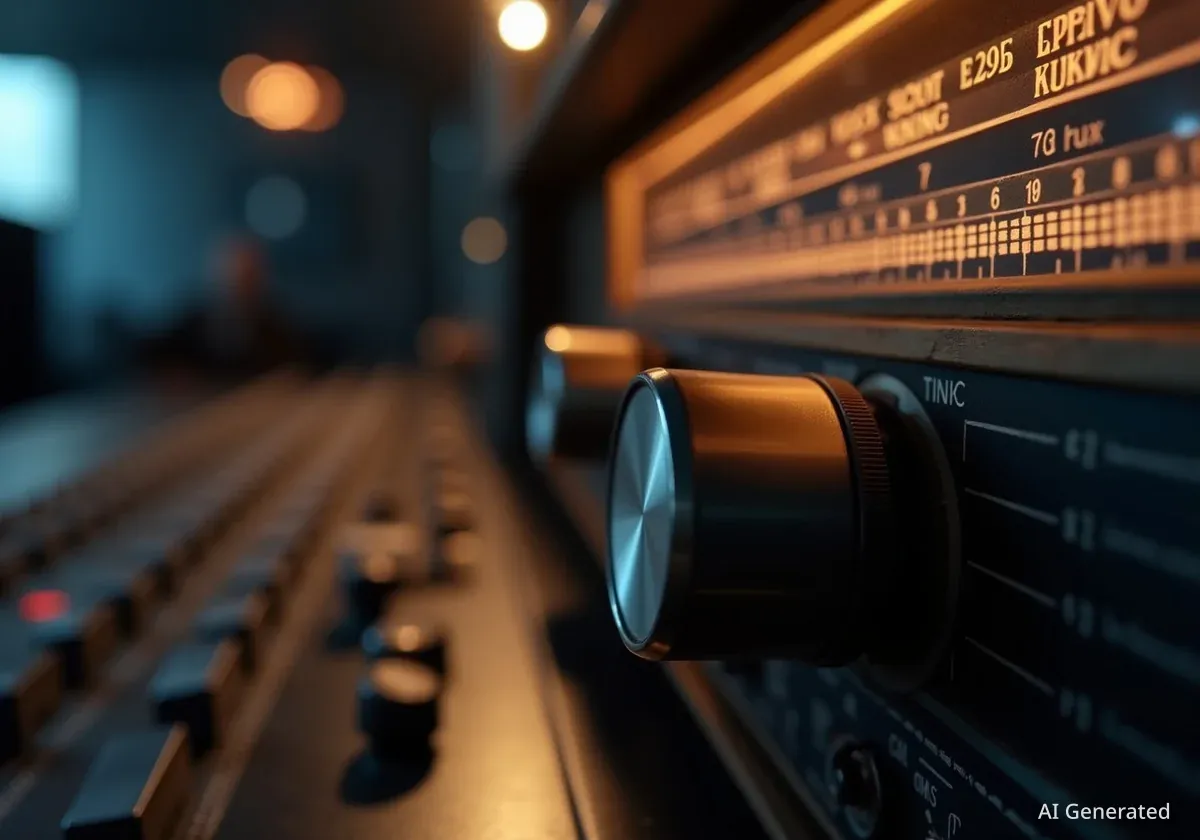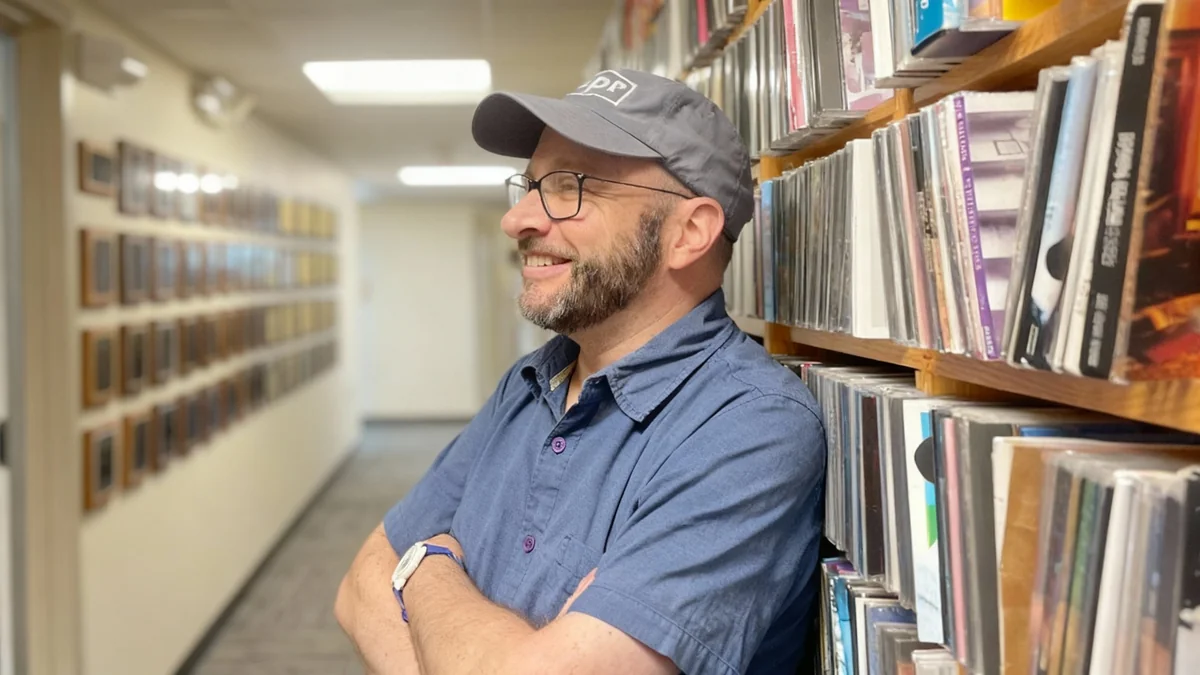Milwaukee's rock music landscape is changing as radio stations WLUM 102.1 FM and WLDB 93.3 FM have been sold to K-Love, a Christian radio network. This acquisition marks a significant shift for listeners who have tuned into these frequencies for rock and alternative music for decades. The transition to a new format is scheduled to begin on Tuesday, impacting the daily routines of many in southeast Wisconsin.
The sale has generated discussion among long-time listeners and former station personalities. They reflect on the stations' legacy and the future of radio in a rapidly evolving media environment. This change highlights broader trends within the broadcasting industry.
Key Takeaways
- WLUM 102.1 FM and WLDB 93.3 FM were sold to K-Love, a Christian radio network.
- The stations will transition to a new format starting Tuesday.
- The sale impacts a significant portion of Milwaukee's rock music audience.
- Former hosts and listeners express nostalgia and discuss the future of radio.
- This event reflects ongoing challenges and changes in the broadcasting industry.
Long-Time Listeners Reflect on Rock Legacy
For many Milwaukee residents, turning on the radio has been a daily habit. Brad Vogel, an avid listener, has tuned into 102.1 FM since his middle school years. He continues to listen to FM radio daily, valuing both the music and the on-air personalities.
Vogel describes these personalities as "local celebrities." He notes that while listeners may never meet them, they feel a connection. This personal connection is a key part of the radio experience for many.
Radio Listening Habits
According to a 2023 Nielsen report, over 90% of adults in the U.S. listen to radio weekly. While digital platforms grow, traditional FM/AM radio maintains a significant audience, particularly for local content.
The sale of both 102.1 FM and 93.3 FM to K-Love means these familiar sounds are about to change. K-Love is known for its contemporary Christian music format. This shift will alter the listening experience for rock music fans.
Former Host Discusses Industry Challenges
Scott Ozzborn, a former radio host at WLUM 102.1 FM, understands the business side of broadcasting. He hosted a late-night show called "Land of Ozz" in the early 2000s. Ozzborn is not surprised by the ownership change, citing the challenges facing the radio industry.
"It's no secret that radio is struggling to find its footing again," Ozzborn stated.
Despite this understanding, Ozzborn expressed sadness at seeing a station like WLUM change hands. He described the station as feeling like "home" for many listeners. It was a reliable source of music and community connection in Milwaukee.
WLUM's Unique Audience and History
WLUM 102.1 FM built its audience by catering to rock lovers. The station established itself as an alternative to more mainstream commercial stations. This allowed it to reach a specific demographic of music fans.
Ozzborn highlighted this aspect: "It's always been an alternative station that reached an audience that other mainstream, commercial-type stations just couldn't reach." This niche appeal fostered a loyal listener base.
The Rise of Christian Radio Networks
K-Love is part of Educational Media Foundation (EMF), one of the largest Christian media organizations in the United States. EMF owns and operates hundreds of radio stations across the country, focusing on contemporary Christian music and programming. Their expansion often involves acquiring existing commercial stations.
During his time at WLUM, Ozzborn covered major events and connected with his audience. He reported on 9/11, attended Mardi Gras annually, and even received a call from Barbra Streisand on his show. These experiences helped build a strong bond with listeners like Brad Vogel.
Vogel recalls listening to Ozzborn's show "religiously" every night. This illustrates the deep connection between hosts and their audience, a hallmark of traditional radio.
Future Sound: Christian Rock and Listener Adaptations
With K-Love taking over, the programming will shift. Both Vogel and Ozzborn considered how rock music might fit into a Christian format. They discussed the potential for Christian rock bands.
Vogel suggested bands like Skillet as a suitable choice for a Christian rock station. He believes such bands could appeal to the existing rock audience while aligning with the new format.
"If it's a Christian company, I mean, Skillet would be a perfect band to play Christian rock, right there, definitely," Vogel commented.
Ozzborn agreed, suggesting that the new ownership should "lean into the Christian rock side of things" to attract existing rock listeners. This strategy could help retain some of the previous audience.
Adaptation in the Radio Landscape
The sale of radio stations is a common occurrence in the media industry. Companies buy and sell stations to consolidate markets, change formats, or adapt to economic conditions. This often results in shifts for both listeners and employees.
Despite the format change, Vogel stated his radio routine would remain the same. He acknowledges that such changes are "part of the business." This perspective highlights a pragmatic acceptance among some listeners.
Market Trends in Radio
The radio industry faces competition from streaming services, podcasts, and other digital platforms. Station sales and format changes are often strategic moves to find new audiences or reduce operational costs. Religious broadcasting has seen consistent growth in audience share in recent years.
The transition to the new format is expected to begin on Tuesday. This will mark the official end of an era for rock music on these Milwaukee frequencies. Listeners will soon experience the new programming offered by K-Love.
This event underscores the dynamic nature of the broadcasting world. Radio stations, while deeply embedded in local culture, must constantly adapt to new ownership, technological advancements, and shifting listener preferences. The sale of WLUM and WLDB is a clear example of this ongoing evolution.




